What is PPC Cloud Services?
PPC (Pay-Per-Click) Cloud Services refer to the use of cloud-based tools and platforms to manage and optimize digital advertising campaigns that operate on a pay-per-click model. Unlike traditional PPC management directly on advertising platforms, PPC cloud services leverage cloud computing infrastructure offered by Google Cloud Platform for enhanced campaign management. These services offer advertisers scalable and accessible solutions for creating, monitoring, and fine-tuning their PPC campaigns across various online channels, including search engines and social media.
Here’s how cloud services can be involved in PPC advertising:
- Ad Campaign Management: Advertisers use cloud-based platforms like Google Ads and Microsoft Advertising to create and manage their PPC ad campaigns. These platforms are hosted in the cloud and offer user-friendly interfaces for setting up and adjusting ad campaigns.
- Keyword Research and Analysis: Cloud-based tools and services can be used for keyword research and analysis to identify the most relevant keywords for PPC campaigns. These tools provide insights into keyword performance and trends.
- Data Analytics: Cloud-based analytics tools are used to track and analyze the performance of PPC campaigns. Advertisers can access real-time data on metrics such as click-through rates (CTR), conversion rates, and return on investment (ROI).
- Ad Creative and Testing: Advertisers can create and test different ad variations, including ad copy and visuals, using cloud-based tools. They can run A/B tests to determine which ads perform best.
- Budget Management: PPC platforms hosted in the cloud allow advertisers to set and manage their advertising budgets. They can allocate funds, set spending limits, and make adjustments as needed.
- Automation and Optimization: Cloud-based PPC platforms often incorporate automation and optimization features that use machine learning algorithms to improve campaign performance. These features can help adjust bids and targeting to maximize results.
How PPC is different from PPC cloud services?
The main difference between PPC (Pay-Per-Click) and PPC cloud services lies in how the advertising campaigns are managed and the technology infrastructure used. Here are the distinctions between the two:
PPC (Pay-Per-Click):
- Concept: PPC is a digital advertising model where advertisers pay a fee each time someone clicks on their ads. These ads can appear on various online platforms like search engines (e.g., Google, Bing), social media (e.g., Facebook, Twitter), or websites.
- Management: Traditional PPC campaigns can be managed through platforms provided by search engines or social media platforms directly. Advertisers create and optimize their campaigns using these platform-specific tools.
- Infrastructure: PPC campaigns are typically managed on the advertising platforms’ infrastructure, which may or may not be cloud-based. The technology stack is determined by the platform itself.
PPC Cloud Services:
- Concept: PPC cloud services, on the other hand, refer to the use of cloud-based tools and platforms to manage and optimize PPC advertising campaigns. It’s about utilizing cloud computing technology to enhance the process of PPC campaign management.
- Management: PPC cloud services involve using third-party or cloud-based software and tools to create, manage, and analyze PPC campaigns. These tools provide additional features and analytics beyond what’s offered by the advertising platforms directly.
- Infrastructure: PPC cloud services are hosted on cloud computing platforms like Amazon Web Services (AWS), Microsoft Azure, or Google Cloud. They provide scalability, accessibility, and often more advanced features for advertisers.
How enterprises can drive more sales using ppc cloud services
Enterprises can drive more sales using PPC (Pay-Per-Click) cloud services by implementing a strategic and data-driven approach to their digital advertising efforts. A well-executed PPC campaign, supported by cloud-based technology, can reach a broader audience, maximize advertising spend, and ultimately increase sales and revenue.
Here are steps and strategies that can help:
- Comprehensive Keyword Research: Use PPC cloud services to conduct in-depth keyword research. Identify high-converting keywords relevant to your products or services. Leverage keyword research tools to discover new opportunities and analyze competition.
- Ad Campaign Optimization: Continuously monitor and optimize your PPC campaigns using cloud-based tools. Adjust ad copy, bidding strategies, and targeting parameters to maximize ROI. Implement A/B testing to refine ad creatives and landing pages.
- Data-Driven Decision-Making: Leverage the analytics capabilities of PPC cloud services to make informed decisions. Monitor key performance metrics such as CTR (Click-Through Rate), conversion rate, and ROAS (Return on Ad Spend). Use this data to refine campaigns and allocate budgets effectively.
- Landing Page Optimization: Ensure that your landing pages are highly relevant to your ads. Use cloud-based tools to conduct A/B tests on landing pages to improve conversion rates. Provide clear calls to action (CTAs) and an optimized user experience.
- Remarketing Campaigns: Implement remarketing campaigns to re-engage users who have previously interacted with your website but didn’t convert. Cloud services allow for precise targeting of these potential customers with tailored ads.
- Geo-Targeting: Utilize location-based targeting options available in PPC cloud services to reach customers in specific geographic areas. This is particularly effective for businesses with physical locations or regional target markets.
- Mobile Optimization: Ensure that your PPC campaigns are optimized for mobile devices, as a significant portion of internet traffic comes from smartphones and tablets. Adjust ad formats and landing pages accordingly.
- Competitor Analysis: Use cloud-based competitive intelligence tools to gain insights into your competitors’ PPC strategies. Identify gaps and opportunities to differentiate your offerings and outperform rivals.
- Budget Management: Set clear budgets and spending limits within your PPC cloud services platform. Adjust budgets based on campaign performance and allocate resources to top-performing campaigns.
- Continuous Learning and Adaptation: Stay updated on industry trends and changes in PPC algorithms. PPC cloud services often provide educational resources and forums for advertisers to learn from peers and experts.
- Cross-Channel Advertising: Explore opportunities to expand your PPC efforts across various online platforms, including search engines, social media, and display networks. Cloud-based services make it easier to manage multi-channel campaigns.
- Utilize Automation: Take advantage of automation features within PPC cloud services to streamline routine tasks, such as bid adjustments and ad scheduling. Machine learning algorithms can optimize campaigns in real time.
- Quality Score Improvement: Focus on improving your Quality Score in search engine PPC platforms. Higher Quality Scores can result in lower costs per click and better ad placements.
Final Thoughts:
In summary, while “PPC cloud services” may not be a standardized term, the concept refers to the use of cloud-based tools and platforms to facilitate the management, optimization, and analysis of PPC advertising campaigns. These cloud services offer advertisers the scalability and accessibility they need to run effective digital advertising campaigns on various online platforms.
The post How organizations can boost revenue using PPC cloud services? appeared first on .
Tags:
- Cloud Computing
- ad campaign management
- Cloud-based tools
- data analytics
- Microsoft Advertising
- pay per click advertising
- ppc cloud services

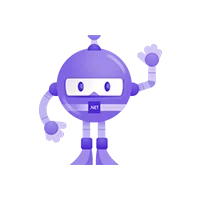 .NET MAUI Development
.NET MAUI Development
 Xamarin Application Development
Xamarin Application Development
 React Native App Development
React Native App Development
 iOS Application Development
iOS Application Development
 Android Application Development
Android Application Development
 Android Wear App Development
Android Wear App Development
 Ionic Development
Ionic Development
 iBeacon Application Development
iBeacon Application Development
 Universal Windows Platform (UWP)
Universal Windows Platform (UWP)
 Kotlin Application Development
Kotlin Application Development
 Swift Application Development
Swift Application Development
 Flutter Application Development
Flutter Application Development
 PWA Application Development
PWA Application Development
 .NET Application Development
.NET Application Development
 .NET Nuke Development
.NET Nuke Development
 Microsoft Dynamics CRM
Microsoft Dynamics CRM
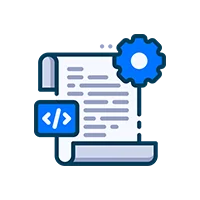 Microsoft Small Business Solution
Microsoft Small Business Solution
 VB .NET Development
VB .NET Development
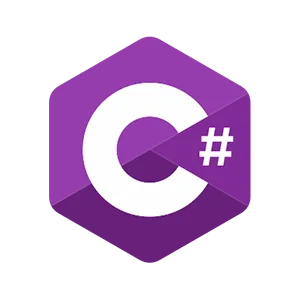 C# Development
C# Development
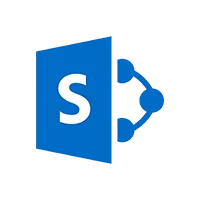 Sharepoint Migration
Sharepoint Migration
 Sharepoint Development
Sharepoint Development
 ASP.NET Core Development
ASP.NET Core Development
 ASP.NET Development
ASP.NET Development
 ASP.NET MVC Development
ASP.NET MVC Development
 Kentico CMS
Kentico CMS
 Umbraco CMS
Umbraco CMS
 AJAX Development
AJAX Development
 Agile Development
Agile Development
 Microsoft Bot
Microsoft Bot
 Microsoft Blazor
Microsoft Blazor
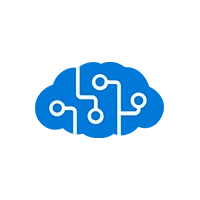 Microsoft Azure Cognitive
Microsoft Azure Cognitive

 Mean Stack Development
Mean Stack Development
 Vue JS Development
Vue JS Development
 Javascript Development
Javascript Development
 Angular JS Development
Angular JS Development
 Next JS development
Next JS development
 Java Development
Java Development
 Python Development
Python Development
 Django Development
Django Development
 Cherrypy Development
Cherrypy Development
 NodeJS Development
NodeJS Development
 Laravel Development
Laravel Development
 CodeIgniter Development
CodeIgniter Development
 Zend Development
Zend Development
 Ruby on Rails Development
Ruby on Rails Development
 CakePHP Development
CakePHP Development
 PHP Website Development
PHP Website Development
 Symfony Development
Symfony Development
 Drupal Development
Drupal Development
 Joomla Development
Joomla Development
 Wordpress Development
Wordpress Development
 Offshore Software Development
Offshore Software Development
 Custom Application Development
Custom Application Development
 Full Stack Development
Full Stack Development
 AI & Machine Learning
AI & Machine Learning
 Custom CRM Solutions
Custom CRM Solutions
 Flask Software Development
Flask Software Development
 Electron JS Development
Electron JS Development
 ChatGPT Development
ChatGPT Development
 Magento Development
Magento Development
 Magento 2.0 Development
Magento 2.0 Development
 Magento Enterprise
Magento Enterprise
 Shopping Cart Development
Shopping Cart Development
 Prestashop Development
Prestashop Development
 Shopify Development
Shopify Development
 Open Cart Development
Open Cart Development
 WooCommerce Development
WooCommerce Development
 BigCommerce Development
BigCommerce Development
 NopCommerce Development
NopCommerce Development
 Virto Commerce Development
Virto Commerce Development
 AspDotNetStorefront Development
AspDotNetStorefront Development
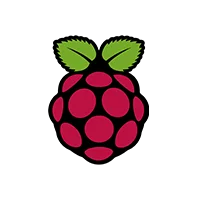 RaspBerry Pi
RaspBerry Pi
 Firmware Software Development
Firmware Software Development
 ESP 32 Software Development
ESP 32 Software Development
 Embedded Development
Embedded Development
 Internet of Things
Internet of Things
 Nordic Development
Nordic Development
 HTML 5
HTML 5
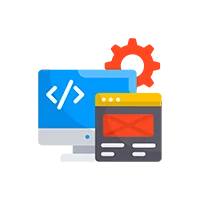 UI/UX Design
UI/UX Design
 Graphic Design
Graphic Design
 Adobe Photoshop
Adobe Photoshop
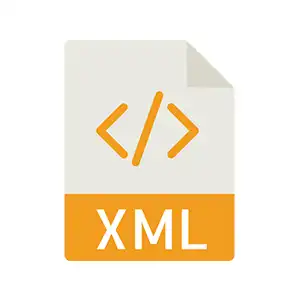 XML Application Development
XML Application Development
 Cloud Computing Solutions
Cloud Computing Solutions
 Azure Cloud App Development
Azure Cloud App Development
 AWS Development
AWS Development
 Google Cloud Development
Google Cloud Development
 SQL Programming Development
SQL Programming Development
 MySQL Development
MySQL Development
 MongoDB Development
MongoDB Development
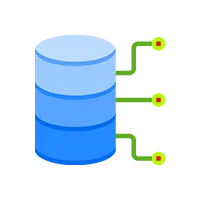 Big Data
Big Data
 Robotic Process Automation
Robotic Process Automation
 Social Media Marketing
Social Media Marketing
 Search Engine Optimization
Search Engine Optimization
 QA Testing
QA Testing
 Software Testing
Software Testing
 Software Security
Software Security
 Maintenance And Support
Maintenance And Support
 I.T. Consulting Services
I.T. Consulting Services
 Business Intelligence
Business Intelligence
 YII Development
YII Development
 Data Analysis
Data Analysis
 Alexa Skills Development
Alexa Skills Development
 On Demand App for Mobile repairing services
On Demand App for Mobile repairing services
 On Demand App for Car Service Booking
On Demand App for Car Service Booking
 On Demand App for Cleaning Services
On Demand App for Cleaning Services
 On Demand App for Pharmacy
On Demand App for Pharmacy
 On Demand Dedicated Developers
On Demand Dedicated Developers
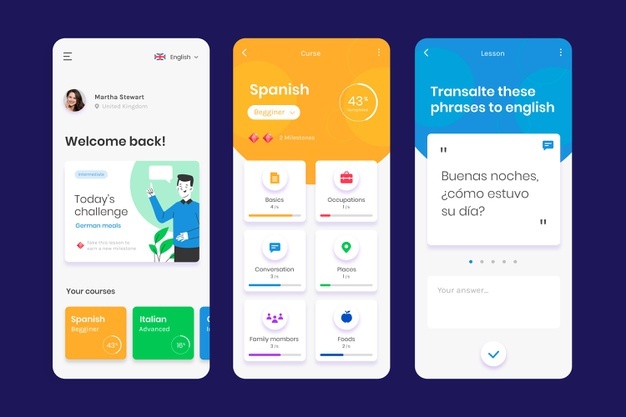






Leave a Reply